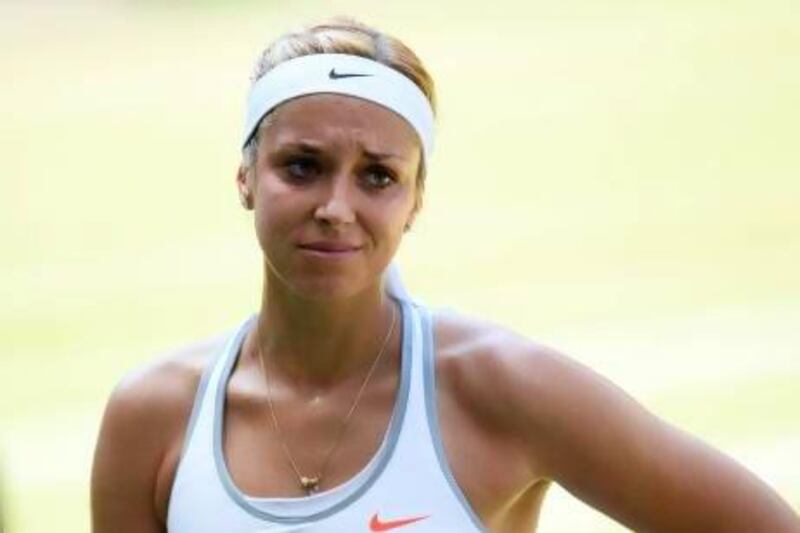It has been some week for women in sport. But not necessarily all in a good way.
As Andy Murray's Wimbledon win was being hailed as the first by a Briton in 77 years, plenty of people pointed out that four female tennis players had in fact achieved that accolade since then, thank you very much, the last of them being Virginia Wade in 1977.
"Murray the champion, and Murray the man of the moment," the BBC commentator screeched. The clue is in there somewhere.
And, coming on the back of the BBC's John Inverdale making disparaging comments about Marion Bartoli's physique, the media is being accused of taking a condescending, even sexist, view of women's sport.
Feminist writer Chloe Angyal, tweeted: "Murray is indeed the first Brit to win Wimbledon in 77 years unless you think women are people".
Ouch.
For women's sport, all around the world, the struggle is ongoing. The mixed coverage of ladies tennis at Wimbledon 2013 showed that.
Despite huge advances, even the most high profile of events generally play second fiddle to men's.
The Fifa Women's World Cup in 2011 in Germany managed to attract average crowds of over 25,000 per match. Coverage, too was, unprecedented, with several channels broadcasting all 32 matches across Europe, and Al Jazeera doing the same across the Middle East. Total prize money was US$10 million (Dh36.7m).
Yet look at the 2010 men's World Cup and there is no comparison at all. In South Africa, total prize money was US$42 million (Dh154.2m), with teams exiting the quarter-finals still made more ($14m) than the total prize money of the women's event.
It's hard to find a sport where the women's version gets as much media attention and the same rewards. Tennis is probably the nearest to complete equality, and its women had to fight for years to earn equal prize money at majors.
However, it's not all bad news. At around the same time as Murray's success, two relatively unknown female athletes were, halfway around the world, busy making a name for themselves.
And they were representing the UAE. In fact, perhaps for the first time, the nation's female athletes were drawing as much attention as their male counterparts. Crucially, they also received as much support.
On Sunday, UAE long-distance runner Bethlem Desaleyn won a second gold medal at the Asian athletics championships in India by winning the 5,000m title, having earlier triumphed in the 1,500m.
The good news didn't stop there. Desaleyn's double triumph had come after her training partner Alia Saeed had won silver in the 10,000m run on the competition's opening day.
One way to change the current perception of women's sport is to continue to break down barriers, and in the process attract attention and inspire young athletes to follow suit.
It is far easier than done, certainly in some of our more conservative societies, but Desaleyn is giving it a good run.
Born in Ethiopia, she became eligible to run for the UAE under IAAF rules in 2010 at the age of 18, and spent the next two years preparing for the Olympics.
However, in London her inexperience showed against a world class field and she failed to qualify to the semi-final after finishing her third heat seven seconds off qualifying for the next round.
A year on she's a gold medallist, albeit at a less prestigious event.
Saeed, meanwhile, had won a 5,000m gold at the 2011 Arab Games in Doha, beating Desaleyn into second place, but had never competed at continental or Olympic level before she did in India.
Cynics will point out that Desaleyn, and Saeed, were sourced from a country famed for producing long distance runners.
Yet witness how joyously Britain embraced Somali-born Mo Farah's achievements at the London Olympics and it's clear that the two female runners can have a real influence on aspiring female athletes in the UAE, regardless of their place of birth.
Next up for Desaleyn is August's World Championships in Moscow, where she will once again run in the 1,500m and 5,000m events.
Further down the line, she and Saeed will take on the continent's best once more at the Asian Games in Incheon, South Korea, in September 2014.
Who knows, by then she could have a World Championship semi-final, or even final, appearance to her name.
Not to mention a significantly larger army of followers, both female and male.
Follow us
[ @SprtNationalUAE ]





